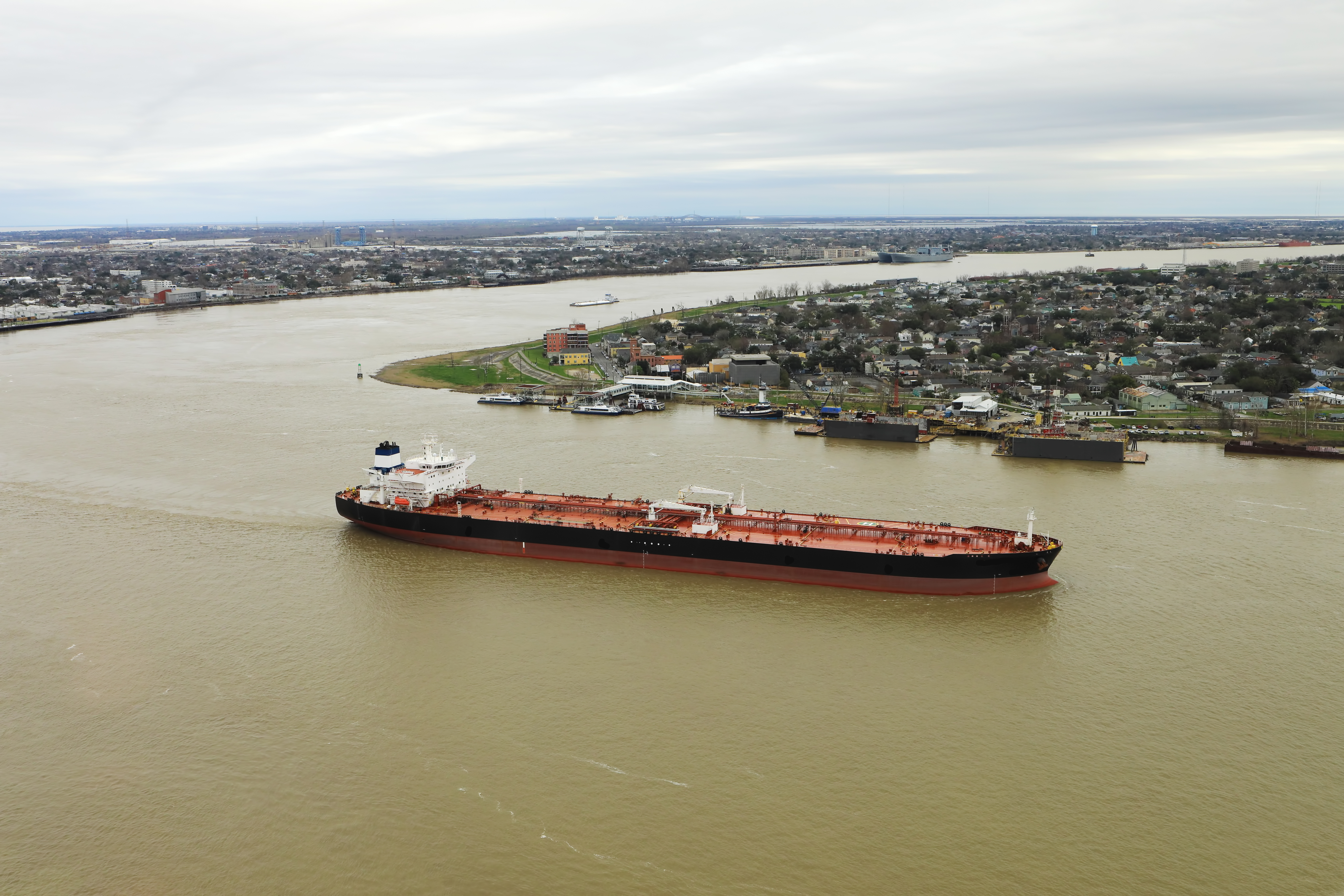Effort Shipping Co. Ltd. v. Linden Management S.A. and Another-The "Giannis NK" House of Lords 22 January 1998 ([1999] 1 Lloyd's Rep. 337).
In November 1990 a cargo of ground-nut extraction mill pellets was loaded into hold 4 of the m/v Giannis NK. Cargoes of bulk wheat pellets had been loaded into other holds at previous loading ports. The ground-nut pellets were fumigated after loading and an SGS certificate was issued. The vessel then crossed the Atlantic, discharged at St. Juan in Puerto Rico part of the grain pellets and then proceeded to Rio Haina in the Dominican Republic to discharge the balance of the cargo. Upon arrival it was inspected by the Agricultural Authorities and live insects and shed skins were found in the cargo and the vessel was quarantined. After fumigation live insects were still found in the vessel holds and the vessel was ordered to leave the port with both the ground-nut cargo and the wheat cargo still on board. Then the vessel sailed back to St. Juan and after examination of the cargo by the State Department of Agriculture a notice was served on the owners requiring them either to return the cargo to its country of origin or to dump it at sea. The vessel then proceeded out to sea and dumped both the ground-nuts and the balance of the wheat still on board.
The owners claimed against the charterers and the shippers stating the ground-nuts cargo was a dangerous cargo by reason of the fact that it contained khapra beatle and claimed that they could recover from the shippers pursuant to art. IV, r. 6 of the Hague Rules which were incorporated into the contract of carriage evidenced by the bill of lading. Judgment in favour of the claimant was issued by the Commercial Court ([1994] 2 Lloyd's Rep. 171) and the decision of the Commercial Court was affirmed by the Court of Appeal ([1996] 1 Lloyd's Rep. 577). Leave to appeal to the House of Lords was granted.
Held, by the House of Lords, that:
(1) The word "dangerous" in the expression "goods of . [a] dangerous nature" must be given a broad meaning. Goods may be dangerous if they are dangerous to other goods, even though they are not dangerous to the vessel itself. A groundnut cargo is of a dangerous nature if it is liable to give rise to the loss of the other cargo loaded on the same vessel by dumping at sea. The liability of the shipper under article 4(6) of the Hague Rules is strict irrespective of fault or neglect on his part.
House of Lords 22 January 1998, Effort Shipping Co. Ltd. v. Linden Management S.A. and Another-The "Giannis NK" ([1999] 1 Lloyd's Rep. 337).
The word "dangerous" in the expression "goods of . [a] dangerous nature must be given a broad meaning. Goods may be dangerous if they are dangerous to other goods, even though they are not dangerous to the vessel itself. A groundnut cargo is of a dangerous nature if it is liable to give rise to the loss of the other cargo loaded on the same vessel by dumping at sea. The liability of the shipper under article 4(6) of the Hague Rules is strict irrespective of fault or neglect on his part.
Lord Lloyd of Berwick: (.) It is convenient to get two preliminary points out of the way. They are not in dispute.
First, it has been settled law since Chandris v. Isbrandtsen-Moller Co. Inc., (1950) 83 Ll. L. Rep. 385; [1951] 1 K.B. 240 that the word "dangerous" in the expression "goods of ..[a] dangerous nature" must be given a broad meaning. Dangerous goods are not confined to goods of an inflammable or explosive nature, or their like. In Chandris v. Isbrandtsen-Moller Co. Inc., the question arose in relation to a consignment of turpentine. In that case the charter-party prohibited the shipment of "acids, explosives, arms, ammunition or other dangerous cargo". The shippers argued that "other dangerous cargo" should be given a restricted meaning. This was, they said, indicated by the context in which the words appear. Mr. Justice Devlin said, at p. 393, col. 1; p. 246:
. I can find no such indication. It seems to me that the only reason why the owner is objecting to acids, explosives, arms or ammunition is because they are dangerous; and that being so he may be presumed to have the same objection to all other dangerous cargo.
Secondly, goods may be dangerous within the meaning of art. IV. r. 6 if they are dangerous to other goods, even though they are not dangerous to the vessel itself.
What then is the meaning of the word dangerous" in this context? Mr. Schaff argues that "dangerous" means, or at any rate includes, cargo which is physically dangerous to other cargo. Even though there was no risk of the infestation spreading from the ground-nut cargo in no. 4 hold to the wheat cargo in Nos. 2 and 3 hold, nevertheless the ground-nut cargo was physically dangerous to the wheat cargo because the dumping of the wheat cargo at sea was "a natural and not unlikely consequence" of shipping the ground-nut cargo infested with Khapra beetle: see par. 7(1) of the agreed statement of facts.
Mr. Johnson, on the other hand, while conceding that the ground-nut cargo caused physical damage to the wheat cargo in that sense, submits that there was no direct physical damage to the wheat cargo. Cargo is only dangerous within the meaning of art. IV, r. 6 if it causes, or is likely to cause, direct damage to other cargo by its own leakage. Here, the only physical damage to the wheat resulted from the decision to dump the cargo at sea. That was a decision which was taken for commercial reasons. No doubt the decision was sensible, and perhaps unavoidable. But at the time the wheat was dumped it was sound. It had not been affected in any way by the inherent characteristics of the ground-nut cargo.
I prefer Mr. Schaff's argument. I can see no reason to confine the word "dangerous" to goods which are liable to cause direct physical damage to other goods. It is true that goods which explode or catch fire would normally cause direct physical damage to other cargo in the vicinity. But there is no need to qualify the word "dangerous" by reading in the word "directly", which is what Mr. Johnson's argument in effect requires. Indeed the reference to "all damages or expenses directly or indirectly arising out of or resulting from such shipment" point in the other direction.
Mr. Justice Longmore, in an admirably clear and succinct judgement ([1994]) 2 Lloyd's Rep. 171), found that the ground-nut cargo was of a dangerous nature on shipment, on the ground that it was liable to give rise to the loss of the other cargo loaded on the same vessel by dumping at sea. This finding was upheld by Lord Justice Hirst in the Court of Appeal: ([1996]) 1 Lloyd's Rep. 577. I find myself in complete agreement with their reasoning. Accordingly it is unnecessary to consider a further argument that goods may be of a dangerous nature even though they do not present any physical danger to ship or cargo, but are "legally" dangerous in the sense that they are liable to cause delay to ship and cargo through the operation of some local law.
What are the consequences of the finding that the ground-nut cargo was physically dangerous to the wheat cargo? Since the carriers did not consent to the shipment of the ground-nut cargo with knowledge of its dangerous character, the shippers are prima facie liable for all damages and expenses suffered by the carriers. But this brings me to the second question. Mr. Johnson argues that the shippers' liability under art. IV, r. 6 is qualified by the provisions of art. IV, r. 3 That rule provides:
The shipper shall not be responsible for loss or damage sustained by the carrier or the ship arising or resulting from any cause without the act, fault or neglect of the shipper, his agents or his servants.
It cannot have been intended, says Mr. Johnson, that shippers should incur unlimited liability for the shipment of dangerous goods when they did not know, and had no means of knowing, that the goods were infested. Shippers should only be liable in case of some fault or neglect on their part.
Mr. Schaff, on the other hand, argues that art. IV, r. 6 is a free-standing provision, covering the specific subject matter of dangerous goods. If the shippers' liability under art. IV. r. 6 was to be governed by art. IV, r. 3 one would have expected this to be made clear by the inclusion in art. IV, r. 6 of some expression such as "subject to Article IV, r. 3".
Mr. Justice Longmore and the Court of Appeal rejected Mr. Johnson's argument, and so would I. The very breadth of art. IV, r. 3 ("shall not be responsible for loss or damage .... arising or resulting from any case....") makes it unlikely that it was intended to qualify the specific provisions of art. IV, r. 6: generalia specialibus non derogant. If art. IV, r. 3 was intended to have overriding effect, the framers of the rule had appropriate language to hand: see art. II which is expressly made subject to art. VI, and art. VI, which applies "notwithstanding the provisions of the preceding Articles". No such qualifying language is found in either art. IV, r. 6 or in art. III, r. 5.
But there is a more fundamental reason for rejecting Mr. Johnson's argument. The first half of the first sentence or art. IV, r. 6 gives the carrier the right to destroy or render innocuous dangerous goods which have been shipped without his knowing their dangerous nature. Obviously that right cannot be dependent in any way on whether the shipper has knowledge of the dangerous nature of the goods. Yet the sentence continues, without a break, "and the shipper of such goods shall be liable ...". It is natural to read the two halves of the first sentence as being two sides of the same coin. If so, then the shippers' liability for shipping dangerous goods cannot be made to depend on the state of his knowledge. His liability is not confined to cases where he is at fault. (.)
Mr. Johnson pointed out how important it is that provisions of an international convention should, so far as possible, be given the same construction by the Courts of different countries: see Riverstone Meat Co. Pty, Ltd. v. Lancashire Shipping Co. Ltd., [1961] 1 Lloyd's Rep. 57 at p. 70; [1961] A.C. 807 at p. 840 per Viscount Simonds. This is an argument which would carry great weight with me, if there were what Viscount Simonds called "prevailing harmony" on the other side of the Atlantic. But such is not the case. There is no generally prevailing view on the precise point in issue, either in the U.S. or in Canada: see Heath Steel Mines Ltd. v. The Erwin Schroder, [1970] Ex. Cr. 426. Nor were we referred to any cases decided in other maritime jurisdictions.
Turning to the English cases, Mr. Justice Mustill in the Athanasia Comninos, [1990] 1 Lloyd's Rep. 277 expressed the view, obiter, that art. IV, r. 6 is not qualified by art. IV, r. 3. In Mediterranean Freight Services Ltd. v. BP Oil International Ltd. (The Fiona), [1993] 1 Lloyd's Rep. 257 Judge Diamond, Q.C., sitting as a Deputy Commercial Court Judge, with all his great experience of this branch of the law, expressed the same view. I agree with those views, and accept Mr. Schaff's formulation as a correct statement of the law. Article IV, r. 6 is a free-standing provision dealing with a specific subject matter. It is neither expressly, nor by implication, subject to art. IV, r. 3. It imposes strict liability on shippers in relation to the shipment of dangerous goods, irrespective of fault or neglect on their part.




